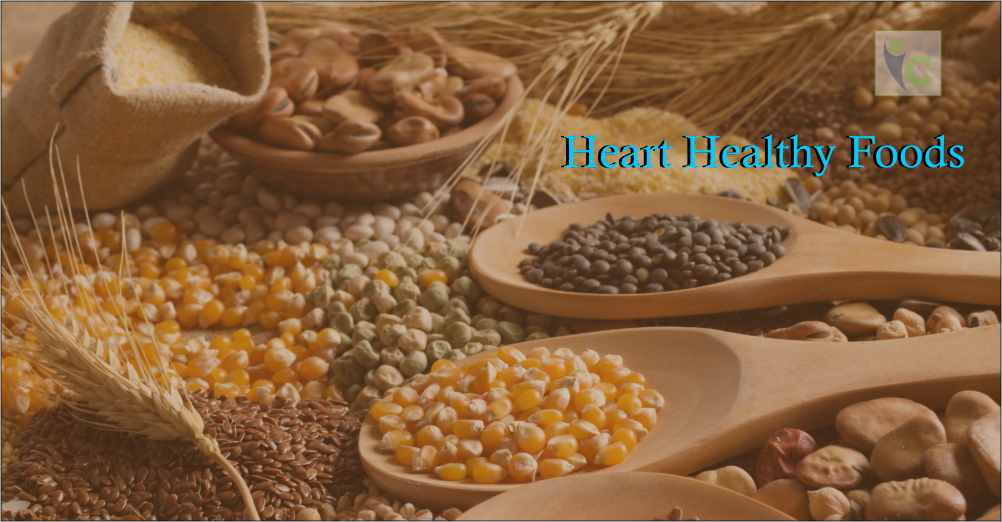Approximately one third of the world deaths are caused due to Heart disease. With the drastic lifestyle changes that have taken place over the years diet plays a key role in heart health and can influence the risk of heart disease. The heart has become the chief source of all the mortalities that are being caused. A few years back heart disease were rare but this has changed. Every other person is being diagnosed with one or the other heart ailment. As new scientific evidence develops, the link amongst diet and heart disease grows stronger.
What you put on your plate can influence just about every aspect of heart health. In fact, certain foods can have an impact on blood pressure, triglycerides, cholesterol levels, and inflammation; all of these are risk factors for heart disease. Including these heart-healthy foods as part of a wholesome, balanced diet can help keep your heart in good shape and curtail your risk of heart disease. Here are a dozen of foods that you should be eating to make the most of your heart health.
- Leafy Green Vegetables
Leafy green vegetables like spinach, kale and collard greens are well-known for their wealth of vitamins, minerals and antioxidants. With their high content of vitamin K and nitrates, leafy green vegetables can help moderate blood pressure and improve arterial function. Research has shown that a higher intake of leafy greens is supplementary with a lower risk of heart disease.
- Whole Grains
Whole grains comprise of all the three nutrient-rich parts of the grain: germ, endosperm, and bran. Common types of whole grains consist of whole wheat, oats, barley, rye, brown rice, buckwheat, and quinoa. Various studies have shown that consumption of whole grains is linked with systolic blood and lower cholesterol pressure, lowering the risk of heart disease.
- Berries
Strawberries, blackberries, blueberries, and raspberries are jam-packed with vital nutrients that play a fundamental role in heart health. Berries are also rich in antioxidants like anthocyanins that protect against the oxidative stress and inflammation that contribute to the development of heart disease. Studies show that eating lots of berries can reduce several risk factors for heart disease.
- Avocados
An excellent source of monounsaturated fats, Avocados have been associated to reduced levels of cholesterol and lower the risk of heart disease. Avocados are high in potassium as well. This helps lower your cholesterol, blood pressure, and risk of metabolic syndrome.
- Fatty Fish and Fish Oil
Fatty fish like salmon, mackerel, sardines and tuna are full off omega-3 fatty acids, which have been reported to be extensively good for heart-health. Fish oil and fatty fish and are both high in omega-3 fatty acids and may help decrease heart disease risk factors, including triglycerides.
- Walnuts
Walnuts are an abundant source of fiber and micronutrients like copper, magnesium, and manganese. Research suggests that walnuts can help lessen cholesterol and blood pressure.
- Beans
Beans comprise of resistant starch that resists digestion and is fermented by the beneficial bacteria in our gut. Beans are high in resistant starch and have presented to decrease levels of cholesterol, lower blood pressure, triglycerides, and decrease inflammation.
- Dark Chocolate
Dark chocolate is high in antioxidants like flavonoids that can help improve heart health. Remarkably, numerous studies have allied eating chocolate with a lower risk of heart disease.
- Tomatoes
Tomatoes are laden with lycopene, a natural plant pigment with potent antioxidant properties. Antioxidants help counterbalance harmful free radicals, preventing oxidative damage and inflammation, both of which can contribute to heart disease as well as an increase in “good” HDL cholesterol.
- Almonds
Almonds are loaded with fiber and monounsaturated fats, and have been associated to reductions in cholesterol and belly fat. These are incredibly nutrient-dense, boasting a long list of vitamins and minerals that are vital to heart health.
- Seeds
Chia seeds, flaxseeds and hemp seeds are all great sources of heart-healthy nutrients, including fiber and omega-3 fatty acids.
Human and animal studies have found that eating seeds may improve several heart disease risk factors, including inflammation, blood pressure, cholesterol and triglycerides.
- Garlic
Garlic and its components have shown to help reduce blood pressure and cholesterol. They may also aid in inhibiting blood clot formation.
- Olive Oil
The heart-healthy benefits of olive oil are well documented. Olive oil is packed with antioxidants that relieve inflammation and decrease the risk of chronic disease. It is rich in monounsaturated fatty acids, and many studies have related it with improvements in heart health.
- Edamame
‘Edamame is an immature soybean frequently found in Asian cuisine.’ Like other soy products, it is rich in soy isoflavones that is a type of flavonoid that helps lower cholesterol levels and improves heart health. It also contains fiber and antioxidants which can also assist heart health.
- Green Tea
Green tea has been linked with a number of health benefits, from increased fat burning to improved insulin sensitivity. It is also overflowing with polyphenols and catechins that can act as antioxidants to inhibit cell damage, reduce inflammation, and protect heart health.










